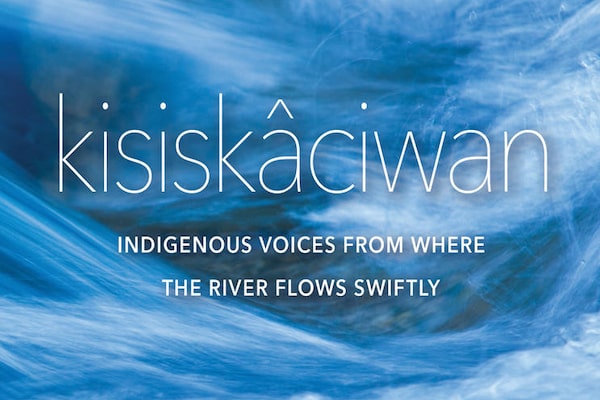
The anthology kisiskâciwan: Indigenous Voices from Where the River Flows Swiftly is to be published next year.
A Cree writer whose presence in an upcoming anthology of Indigenous writing led other writers to pull out of the project has himself now "respectfully" withdrawn his own work. The controversy erupted as a result of domestic violence in Neal McLeod's past.
"I do not want other writers to feel uncomfortable or feel as though they must choose between academic freedom and other values they hold dear. I do not want others to leave so I can stay," Neal McLeod wrote in a lengthy statement, which he e-mailed to The Globe and Mail.
Read Neal McLeod's statement here.
The editor of the anthology kisiskâciwan: Indigenous Voices from Where the River Flows Swiftly, being published by University of Regina Press, had stuck by his decision to include McLeod, following an open letter signed by six other contributors who were withdrawing their work as a result of McLeod's presence.
It was a matter of academic freedom, University of Regina Press director and publisher Bruce Walsh explained to The Globe. Walsh says the anthology will still be published next May, now without McLeod's work or the work of the other writers who withdrew, although those authors are certainly welcome back if they choose.
"I am truly sorry that my presence in kisiskâciwan anthology has caused such divisions in both Indigenous and writing communities I hold dear," wrote McLeod, who identifies himself as Cree and Swedish. "This is an important work, with many prestigious and historical authors in it. I was honoured to be included. I am also very grateful for the efforts U of R Press has offered to create spaces for violence to be discussed."
The 120,000-word anthology goes back to the 1760s, and includes early writings from Cree missionaries, speeches and letters by Treaty Chiefs, stories from elders and contemporary writing.
In his statement, McLeod detailed a difficult life, including witnessing violence as a child, becoming suicidal and his near death from alcoholism at 25.
"I was charged with one incident of domestic violence in 2014. I have done several things to transform my life since then. I acknowledged my responsibility before the courts: not shying away from or minimizing, but rather fully and publicly admitting my wrong-doing. This was far from easy, but I summoned the courage to take the right road, even though it was the far more perilous one, as the present controversy makes clear," he writes.
McLeod says he has undergone "intensive counselling," and met the conditions imposed by the court, according to his statement. Three years later, he has a new life, he writes, with a partner and a young son. He says he is trying to be a good role model for his other four sons and two stepdaughters.
"To my communities, I have deep regret for the ways in which my actions have affected others, those I hurt directly and those who are hurt now. I want to make things right with my communities. I want to help end violence. In the future, as I grow in my understanding in my new path of being, I hope to help others follow a path of non-violence and healing. I am a very different man today. And I ask only for an understanding of the journey I am taking: both the progress made, and the distance to go."
The Globe has not yet been able to connect with Cree writer Erica Violet Lee, who co-organized the open letter. "It can be a really scary and intimidating thing to publicly confront these issues," she told The Globe in an earlier interview. "The reality is we're always told: wait until a better time. But there's no better time than now."
 Marsha Lederman
Marsha Lederman